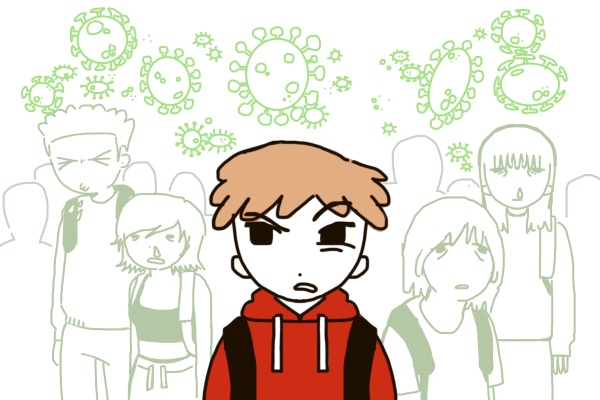Culture appropriation vs. appreciation

photo courtesy of Google under the Creative Commons license
Culture appropriation, according to Oxford Dictionary is “the act of taking or using things from a culture that is not your own, especially without showing that you understand or respect this culture” Cultural appropriation is a hot topic that always seems to poke its head out during Coachella season. The whole aesthetic of Coachella is very summery, boho and flowy. The issue with the famous music festival though, is the appropriation of culture according to Bismah Syed, sophomore and Emma Roberts, sophomore.
Bismah Syed, her family is from Pakistan. Growing up she was surrounded by her community, so she felt more connected with Pakistan.
“I have a lot of [the] Pakistani community around me,” Syed said, “It is important to me because it is normal to wear certain clothing to weddings and other events. [Pakistani community] feels like home, even though I didn’t live there.”
Culture is important to people because it defines who they are. Being submerged in their own culture makes them feel like things that other people see as strange, is seen as normal in their own community. So appropriating something can easily be offensive, according to Teen Vogue’s Girls Embrace Their Culture Through Their Natural Beauty’ but there is a difference between appropriation and appreciation.
“I think appreciation is going to an event,” she said, for example, “Wear a hijab for a day event, and meeting and talking to Muslim women. Appropriation, is when big businesses try to show “diversity” and making women wear hijabs, but not real muslim women. The same goes for other races and their cultures”
There are people who wear Native American Headdresses, bindis, or chopsticks in their hair, but culture appropriation doesn’t just come around during festival season. Culture appropriation happens when Kim Kardashian coined the phrase ‘boxer braids’ from the actually name cornrows, then many youtube tutorials for ‘boxer braids’, even though black women have been discriminated for years for having that style of hair according to Amandla Stenberg’s ‘Don’t cash Crop on My Cornrows.’
Culture appropriation becomes a big problem especially when the people not of said culture appropriates, it’s often more socially acceptable. Culture appreciation is often the excuse for when people get caught appropriating. There is a difference though, appreciation according to Spring Institute is “Appreciating another culture looks like cultural exchange. We would have consent to participate in some culture and both sides mutually benefit and gain understanding of each other.” Appreciation is more of an understanding of one’s culture, or at least trying to learn in an appropriate space.
Emma Roberts, sophomore, has had the opportunity to travel in South/Central America, Africa, Asia and Europe. While doing so, she has learned how to adjust to many cultural norms without appropriating.
“Specifically in Latin American countries, and India, women cover up more. It is really hot, but I wouldn’t wear tank tops [and I] wouldn’t wear shorts.”
Roberts said she thinks that culture appropriation is much different from appreciation. When she travels, she doesn’t wear Bindis in India and doesn’t cover her hair.
Maddie Raimondo, history teacher, used to teach the ‘Black Experience’ class.. The purpose of the class was to learn about black culture and how American history is shaped around it.
“Black culture is huge in American culture,” Raimondo said. “If you look at really our history is so tied to the work of the black community.”
Raimondo also said that black culture is unknown because it’s often left out of American history, so culture appropriation may not seem like a big deal, just like micro aggression until looking at the bigger picture. According to Merriam-Webster dictionary, “Microaggression is a comment or action that subtly and often unconsciously or unintentionally expresses a prejudiced attitude toward a member of a marginalized group (such as a racial minority) also : behavior or speech that is characterized by such comments or actions. “
Raimondo said ignorance can be the main contributor to culture appropriation, but classes like the black experience can shed a light to why culture in general is such big deal.
Your donation will support the student journalists of Kirkwood High School. Your contribution will allow us to purchase equipment and cover our annual website hosting costs.

Interests: Fashion, binging movies, and watching true crime.
Favorite musical artist: Top four: Lana Del Rey, Frank Ocean, Bryson Tiller and Kali...











